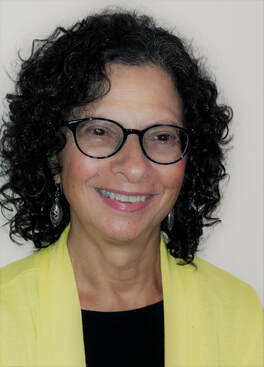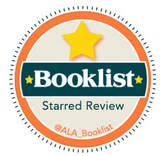 What is the name of the piece that you have in Grabbed? Blindsided Can you speak to the evolution of writing your piece? I have been writing about sexual abuse for decades –sexual harassment in the workplace, violence against women in film, forced childbirth, sexual abuse and assault across religious denominations, especially in the church of my childhood, the Catholic Church. I’ve written and published many personal essays--about having had breast cancer, struggling with an eating disorder, the impact of the Catholic Church’s misogyny on my sense of self, my sexuality, my body. But not until publishing my essay “Blindsided” in Grabbed have I revealed this experience of sexual assault and its aftermath. “Blindsided” is excerpted from a collection of essays, a memoir in progress about my awakening as an Italian-American, working-class, second-wave feminist. The piece is neither new nor newly written. But the experience of seeing it out there in the world is new. Unlike my journalism and other personal essays, this essay represents a different order of revelation and vulnerability. While recalling the experience that is the subject of this essay has always stirred shock, bewilderment, and anger in me, not until I saw “Blindsided” in this collection did I feel what I have never really felt before—sadness. It is a deep, universal sadness, a sadness that very much matches the moment, when at last, the larger culture is willing to acknowledge the harm done, which is the only way that change will ever come. What would you say to another writer who has been uncomfortable or silent about their experience? How can they begin to share their experiences? For anyone who has been grabbed, assaulted, raped, or abused and kept that locked inside, please talk to someone you trust. Share the experience. Work through it. Don’t be afraid of it. By all means, write about it. But as to publishing your experience, I do not think that is an action best done on impulse. Let the idea of going public germinate. That’s not because you should not publish your experience, not at all. It is because you cannot predict the response. Not everyone in your world—family, friends, colleagues, strangers--may support you. You need to be prepared, to know where you will go for solace and comfort. But if you do find the courage to share what happened, know that you will be helping to decimate the notion of the ordinariness of being “grabbed.” You will be helping to end the shame heaped upon the targets of that abuse instead of on the perpetrators. And your voice will be part of a growing worldwide chorus—you will not be alone. How can a publication such as Grabbed help to empower or heal readers? The sheer volume and power of the voices in this unique anthology provide a dramatic example of how normalized both sexual assault and the silence surrounding sexual assault have been in American culture, and how crucial it is that the normalization and the silence end, not just in the U.S., but all over the world. Angela Bonavoglia, MSW, writes about social, health and women’s issues, politics, film, TV, and all things Catholic. Most recently, she authored Good Catholic Girls: How Women Are Leading the Fight to Change the Church (a Booklist Nonfiction Women’s History Top 10, 2006). Her first book, The Choices We Made: 25 Women and Men Speak Out About Abortion (foreword by Gloria Steinem) features her interviews with celebrities and other prominent people about their abortion experiences (1920s-1980s). Her work has appeared in many venues, including Ms., The Nation, the Chicago Tribune, Salon, Women’s Media Center, Rewire, Medium, and HuffPost. Find her on Twitter @angiebona or at www.angelabonavoglia.com.
0 Comments
Leave a Reply. |
Grabbed BlogHave a blog idea for us? Submit it here. Archives
October 2020
Categories |
|
BUY GRABBED
|
If you or anyone you know is a victim of domestic violence, please call The National Domestic Violence Hotline: 1-800-799-7233 1-800-787-3224 (TTY) En Español: 1.800.799.7233 |
 RSS Feed
RSS Feed







